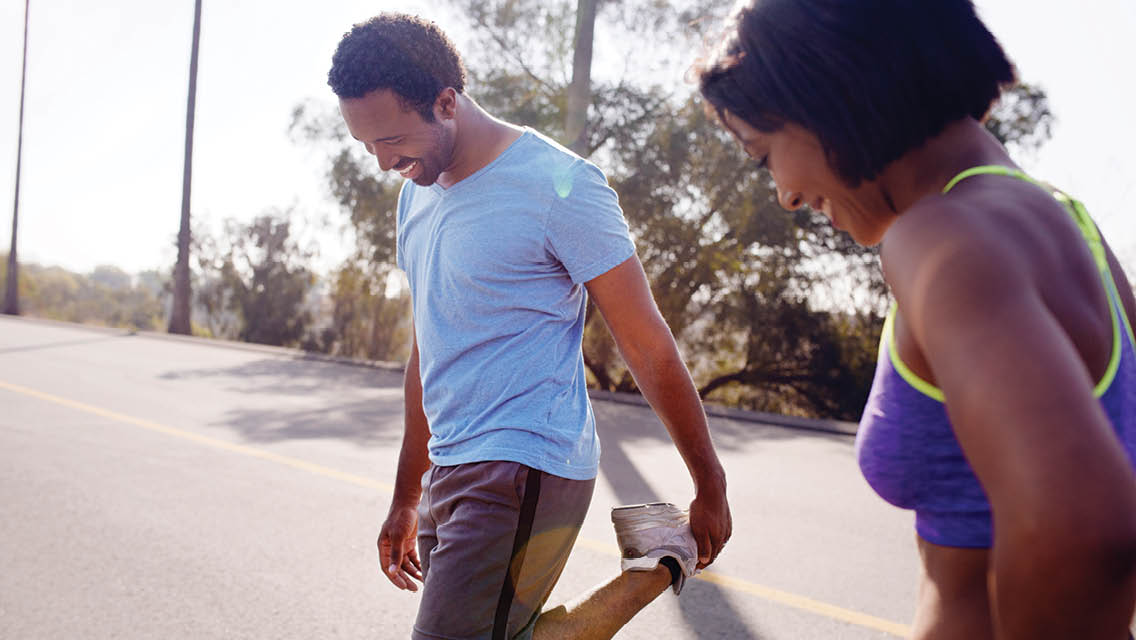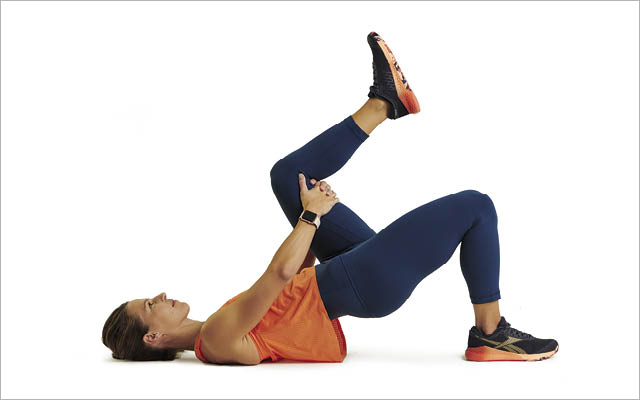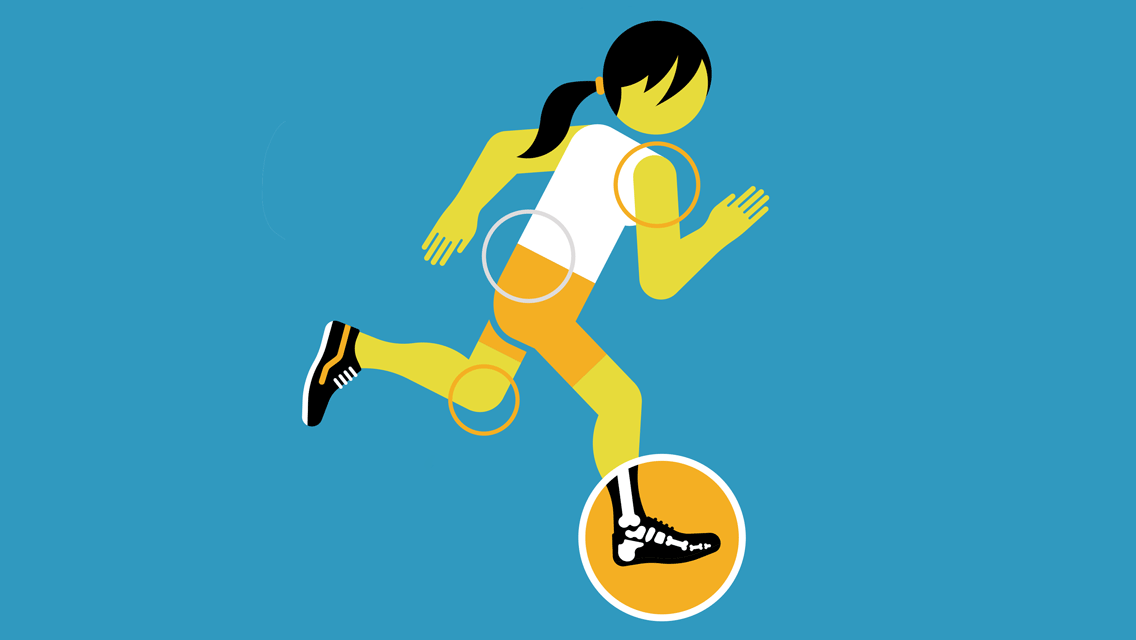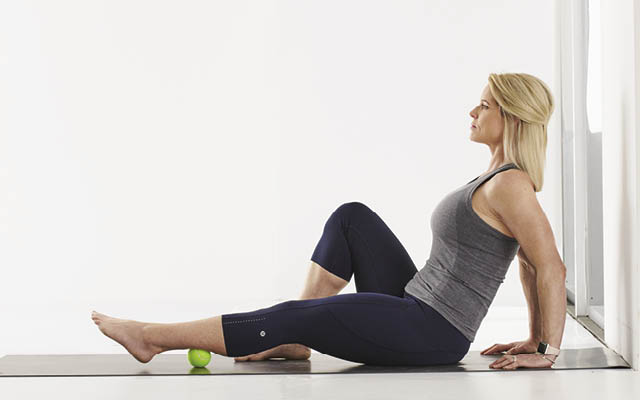Life Time has partnered with the Sports Health experts at NYU Langone to provide insights into the common health issues that have the potential to prevent you from moving freely and functioning at your best.
Meet the Experts

- Kirk Campbell, MD, NYU Langone Health
- Sheena Lance-Nold, NASM CPT/CES, Master Life Time Academy Instructor
Q: I’ve tried to stay active during the pandemic by getting outside more, but I’m also sitting a lot more than usual. And now my knees hurt. What should I do?
A: “When gyms and health clubs closed down, a lot of people tried to re-create their workouts at home, or they decided they wanted to be runners or start biking,” says Kirk Campbell, MD, an orthopedic surgeon at NYU Langone and assistant professor in the Department of Orthopedic Surgery.
Unfortunately, many folks who took up new fitness activities did so without also focusing on the balance, strength, and mobility needed to perform those activities safely.
“Suddenly they’re preparing for a half-marathon without appropriate training, which includes strength training,” Dr. Campbell says. This can result in injuries or muscle imbalances that manifest in knee pain. “You have to have good balance and well-toned muscles, including core muscles and glutes.”
Further, when an injury isn’t well rehabilitated — say you have shin splints and go back to running too soon — you may end up with overuse injuries such as anterior-based knee pain, tendonitis, or IT band syndrome. “People who’ve had a small injury that’s not appropriately rehabilitated are more prone to having another injury,” Dr. Campbell notes.
Of course, injuries and muscle imbalances aren’t limited to newly minted runners, and knee pain affects athletes and nonathletes alike.
“Knee pain is incredibly common,” explains Sheena Lance-Nold, NASM CPT/CES, a rehabilitative exercise specialist and Master Life Time Academy instructor. She notes that habitual patterns such as prolonged sitting or performing certain repetitive movements can cause muscle imbalances that affect the knees.
Imbalances can also be caused by inflammation, tissue trauma, muscle spasms, and adhesions elsewhere in the body. This can initiate a succession of reactions called the cumulative injury cycle.
“The tricky thing is that these imbalances affect and are affected by the entire kinetic chain,” Lance-Nold says. “You can’t just single out the knee. You have to look at what’s going on at the ankle joint, the hip joint, the lumbo-pelvic-hip complex, and the shoulders.”
Troubleshooting Knee Pain
If you suspect an injury, apply the “RICE” technique (rest, ice, compression, elevation), and back off the activity that may have led to the pain, suggests Dr. Campbell. If the pain continues, see a specialist.
Lance-Nold concurs. When fitness clients come to her with knee pain, she refers them first to a clinician to diagnose what’s going on. Once a client is cleared for exercise, she puts together a plan that addresses any imbalances that may have caused the injury and pain to begin with.
In terms of everyday things you can do to alleviate or prevent knee pain, our experts keep their advice simple:
1. Keep moving. Stand up, stretch your hamstrings and calves, walk up and down the stairs, bend your knees. “Keep your joints lubricated by moving your body throughout the day,” Lance-Nold says.
2. Maintain your gear. Check your bike’s seat height and make sure your running or walking shoes aren’t unevenly worn, suggests Dr. Campbell.
3. Sit tall. Slouching forward increases the tightness in the hip flexors, which are typically already overactive, Lance-Nold says.
4. Drink water. “If your body is dehydrated, you’re going to feel more aches and pains,” says Lance-Nold.
5. Strive for a healthy weight. Each pound of body weight translates to 4 pounds of force on your knees, says Dr. Campbell.
At NYU Langone, their Sports Health experts have the multi-specialty expertise to provide coordinated, comprehensive care for all types of athletes. As an official healthcare partner, Life Time members receive exclusive concierge access to their world-class orthopedic specialists and performance experts, who can help you meet your fitness goals. To schedule an in-person appointment or video visit with a Sports Health expert, visit nyulangone.org/lifetime.




